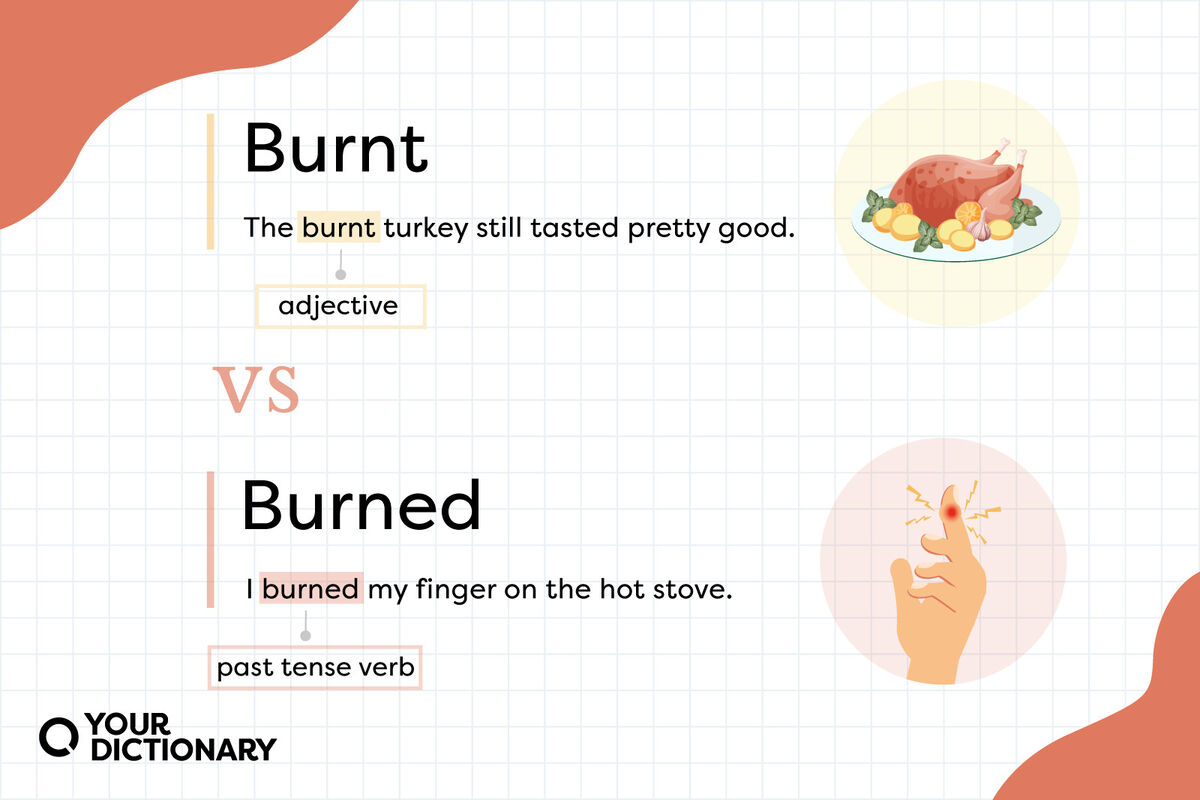
You took a sip of coffee when it was too hot — oh no! Now you have a burned tongue. Or is it a burnt tongue? Ease your pain with some quick tips and explanations about the differences between burnt vs. burned.
Is "Burnt" or "Burned" Correct?
Both burnt and burned are real words, and depending on where you are in the world, they're both correct. In American English, the difference between these words is:
- burnt - adjective (the burnt toast)
- burned - past tense verb (I burned the toast)
If you're more familiar with British English, you may consider these words interchangeable. However, if Americans use burnt at all, they only use it as an adjective.
"Burnt" Is an Adjective
You may recognize the word burnt as the name of rusty colors, such as burnt sienna. It's the participial adjective form of the verb burn. In American English, burnt describes a noun that has been burned in the past. For example:
- The burnt marshmallow melted easily between the graham crackers.
- Even though the turkey was a little burnt, it was still a great dinner.
- All that's left of the house is some burnt wood and bricks.
You could use burned in this way as well, but it may sound a little funny to some readers. "Burned marshmallow" doesn't have quite the same sensory effect as "burnt marshmallow."
"Burned" Is a Verb
The word burned typically appears as a past tense form of the regular verb "to burn." You can also use it in the past perfect verb tense with the linking verb has. For example:
- We watched as the campfire slowly burned to a flicker.
- Once I burned dinner so badly that we had to replace the entire stove.
- The wildfire has burned over 10,000 acres so far.
If you're British or familiar with British English, you could replace burned with burnt in these sentences without a second thought. American readers, however, prefer burned when talking in the past tense (although burnt has become slightly more popular in recent years).
Other Verbs With -t Endings
Burnt and burned aren't the only word pair in which the British spelling has a -t ending and the American spelling ends in an -ed. Other verbs in this category include:
|
Verb |
British Spelling (Past) | American Spelling (Past) |
| dwell | dwelt | dwelled |
| lean | leant | leaned |
| learn | learnt | learned |
| smell | smelt | smelled |
| spell | spelt | spelled |
| spill | spilt | spilled |
| spoil | spoilt | spoiled |
British readers may find all of these forms acceptable, while American readers probably prefer the last column. However, many words with -t endings (also known as weak verbs) are also present in American English, such as built, knelt, meant, lent, sent, slept, swept, and went.
Don't Get Burned (or Burnt) by Grammar
Like many similar-sounding word pairs, the matter of burnt vs. burned depends on your personal style. If one sounds better to your ear, you won't be incorrect if you use it that way. For more differences between British and American spelling, take a look at traveled vs. travelled to see which version you prefer.